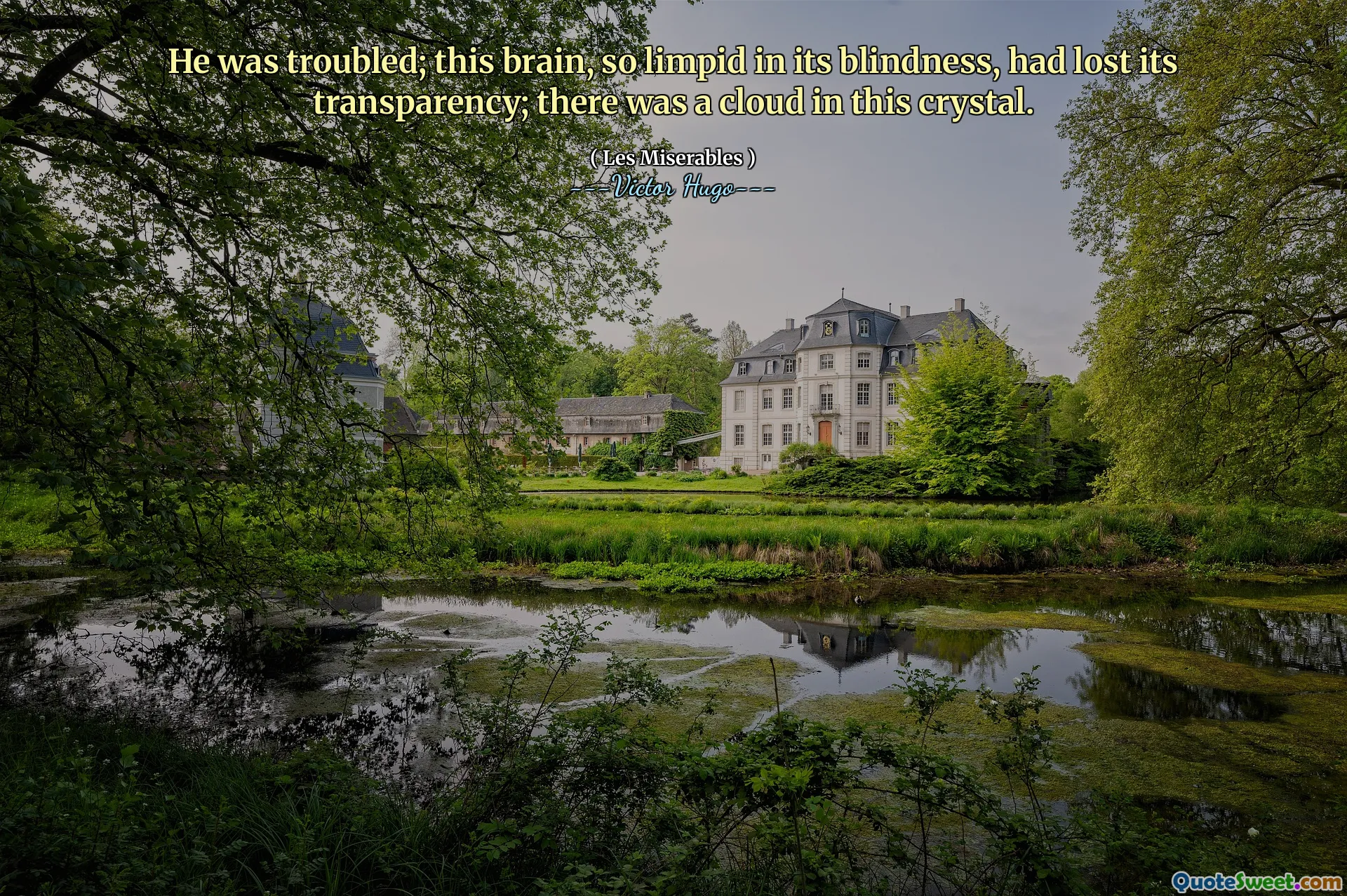
He was troubled; this brain, so limpid in its blindness, had lost its transparency; there was a cloud in this crystal.
This quote from Victor Hugo's 'Les Miserables' offers a profound metaphor about the human mind and perception. The phrase 'limpid in its blindness' suggests a mind that is clear or transparent in its understanding or awareness, yet paradoxically blind—unable to see or recognize certain truths. The imagery of losing transparency and developing a cloud in a crystal signifies a deterioration or obstruction in mental clarity. It evokes a sense of inner turmoil and confusion, as if the mind, which ideally should be a source of clarity and insight, becomes murky and clouded by doubt, pain, or unresolved conflicts. This metaphor can be applied broadly to the human condition: even when we believe ourselves to comprehend the world or our circumstances, there can be hidden doubts or unseen obstacles clouding our perception. The phrase challenges us to consider the nature of understanding—how the mind can be both luminous and blind at the same time, revealing the fragile balance between insight and ignorance. It also speaks to the experience of internal struggle, where mental clarity is disrupted, leading to a sense of disorientation and emotional unrest. Hugo's poetic language invites reflection on the importance of mental transparency and the impacts when it is compromised, serving as a reminder of the persistent human quest for clarity amidst the inevitable clouds of doubt and confusion that life presents.






